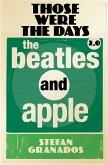West Germany following the Second World War was a country in shock: estranged from its recent history, and adrift from the rest of Europe. But this disorientating landscape proved fertile ground for a generation of musicians who, from the 1960s onwards, would develop the experimental and various sounds that became known as Krautrock.
Eschewing the Anglo-American jazz/blues tradition, they took their inspiration from elsewhere: the mysticism of the East; the fractured classicism of Stockhausen; the pneumatic repetition of industry and the dense forests of the Rhineland; the endless winding of Autobahns.
Faust, Neu!, Cluster, Ash Ra Tempel, Amon Düül II, Can and Kraftwerk. These may not all be household names, but the influence of their ruminative, expansive compositions upon Western popular music is incalculable. These groups were key to the development of postpunk, electronica and ambient music. Without them Bowie would not have made his Berlin trilogy, Talking Heads would have been a straight-ahead rock band, and the Pet Shop Boys would have a completely different stage act.
Future Days is an in-depth study of this meditative, sometimes abstract, often very beautiful music and the groups that made it, throwing light on the social and political context that informed them. It's an indispensable book for those wanting to understand how much of today's music came about, and to discover a wealth of highly influential and pioneering musicians.
Eschewing the Anglo-American jazz/blues tradition, they took their inspiration from elsewhere: the mysticism of the East; the fractured classicism of Stockhausen; the pneumatic repetition of industry and the dense forests of the Rhineland; the endless winding of Autobahns.
Faust, Neu!, Cluster, Ash Ra Tempel, Amon Düül II, Can and Kraftwerk. These may not all be household names, but the influence of their ruminative, expansive compositions upon Western popular music is incalculable. These groups were key to the development of postpunk, electronica and ambient music. Without them Bowie would not have made his Berlin trilogy, Talking Heads would have been a straight-ahead rock band, and the Pet Shop Boys would have a completely different stage act.
Future Days is an in-depth study of this meditative, sometimes abstract, often very beautiful music and the groups that made it, throwing light on the social and political context that informed them. It's an indispensable book for those wanting to understand how much of today's music came about, and to discover a wealth of highly influential and pioneering musicians.
Dieser Download kann aus rechtlichen Gründen nur mit Rechnungsadresse in A, B, BG, CY, CZ, D, DK, EW, E, FIN, F, GR, H, IRL, I, LT, L, LR, M, NL, PL, P, R, S, SLO, SK ausgeliefert werden.



